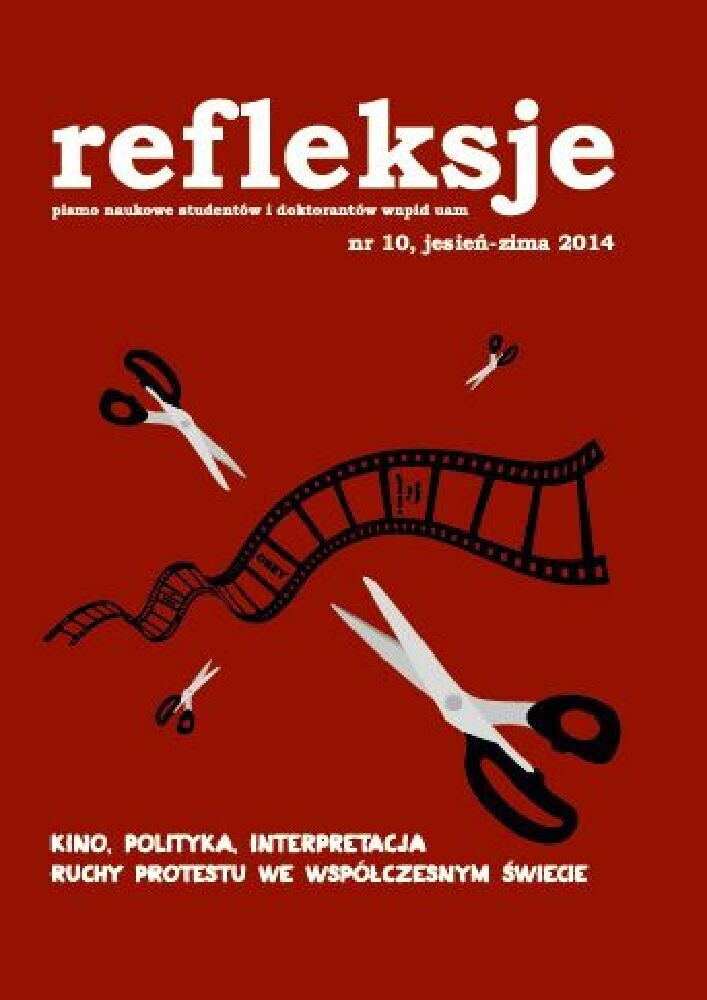Abstrakt
The article is devoted to the image of Poland in German cinema after 1989. First, I present arguments against adopting the postcolonial approach, as it is insufficient for a complete critical description of this phenomenon, as well as inconsistent with the foreign policy of the united Germany. Next, I analyze the role of money as requisite, interpreting the film image of Poland as a caricature of Western rationality – a reality in which no other logic is possible apart from the logic of money (which is taboo in contemporary Germany).
Bibliografia
Abel M. (2008), Intensifying Life: The Cinema of Berlin School, „Cineaste”
nr 4.
Adorno T. W., Horkheimer M. (2010), Dialektyka oświecenia, Warszawa.
Agamben G. (2009), Stan wyjątkowy, Kraków.
Bosau H. von (1990), Chronik der Slaven, red. A. Heine, Stuttgart.
Buden B. (2012), Strefa przejścia: o końcu postkomunizmu, Warszawa.
Canetti E. (1996), Masa i władza, Warszawa.
The Europeanization of Central and Eastern Europe (2005), red. U. Sedelmeier, F. Schimmelfennig, London.
Goldsworthy V. (1998), Inventing Ruritania. The Imperialism of Imagination, New Hawen-London.
Hahn H. H. (2011), Niemcy a Wschód. Powrót do normalności – lecz co jest normalne?, [w:] H. H. Hahn, Stereotypy, tożsamość, konteksty. Studia nad polską i europejską historią, Poznań.
Hörisch J. (2010), Orzeł czy reszka. Poezja pieniądza, Kraków.
Janion M. (2007) Niesamowita słowiańszczyzna, Kraków.
Kopp K. (2013), Germany’s Wild East: Constructing Poland as Colonial
Space, Ann Arbor.
Kopp K. (2014), ‘If Your Car Is Stolen, It Will Soon Be in Poland’: Criminal
Representations of Poland and the Poles in German Fictional Film of the
s, [w:] Postcolonial Approaches to Eastern European Cinema: Portraying Neighbours on Screen, red. E. Mazierska, L. Kristensen, E. Naripea, London-New York.
Krasnodębski Z. (2005), Demokracja peryferii, Gdańsk.
Kundera M. (1984). Zachód porwany albo tragedia Europy Środkowej, „Zeszyty Literackie” nr 5.
Lubelski T. (1993), Cudze głosy, obce życie, „Kino” nr 11.
Marszałek R. (1994), Nie, „Kino” nr 1.
Montesquieu Ch. de (1979), Listy perskie, Warszawa.
Mückenberger Ch. (2004), Wizerunki sąsiada ze Wschodu – od Kulturfilmu
czasów weimarskich do dokumentu NRD, [w:] Kino niemieckie w dialogu
pokoleń i kultur, red. A. Gwóźdź, Kraków.
Sebald W. G. (2012), Wojna powietrzna i literatura: wykłady, Kraków.
Sloterdijk P. (2008), Krytyka cynicznego rozumu, Wrocław.
Staël de G. (1852), De L’Allemagne, Paris.
Suchsland R. (2014), Sehnsucht nach Erlösung, Artechock Filmmagazin,
http://www.artechock.de/film/text/kritik/m/milchw.htm, 04.09.2014.
Szarota T. (1996), Niemcy i Polacy. Wzajemne postrzeganie i stereotypy,
Warszawa.
Szkłowski W. B. (1986), Sztuka jako chwyt, [w:] Teoria badań literackich za granicą. Antologia, t. II, cz. III, red. S. Skwarczyńska, Kraków
Thompson E. (2007), The Surrogate Hegemon in Polish Postcolonial Discourse, Rice University, http://www.owlnet.rice.edu/~ethomp/The%20
Surrogate%20Hegemon.pdf, 05.09.2014.
Wolff L. (1994), Inventing Eastern Europe: The Map of Civilization on the
Mind of the Enlightenment, Stanford.
